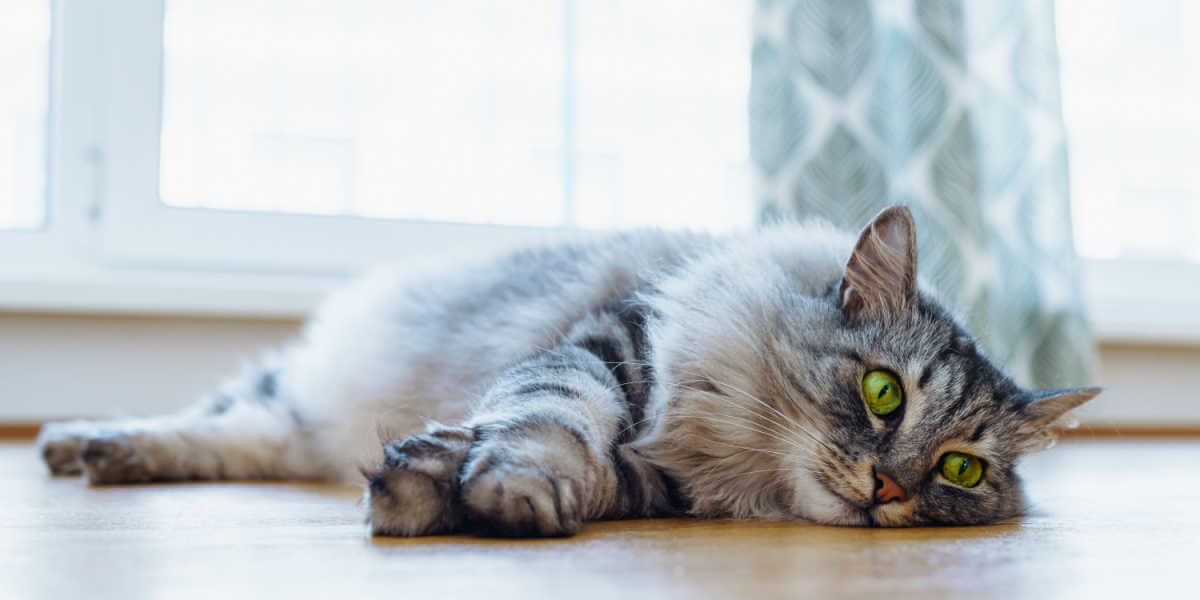
There’s nothing more heartbreaking than watching a pet grieve after their owner or pet companion has died. Many pets will show obvious signs of grief and distress and this may last for some time. There have been many stories of pets dying after their owner or companion has and it begs the question, can cats die of a broken heart? We’ll discuss this in detail now.
Similar to humans, cats can experience emotions like sadness, depression, anxiety, and even grief. Cats are most likely to express grief when losing their owner or a close fellow pet companion. Cats experiencing grief need to be watched closely to make sure that their needs are being met and that the stress of the grief is not greatly impacting their health.Key Takeaways
Broken-Heart Syndrome
Takotsubo cardiomyopathy, also known as broken-heart syndrome or stress-induced cardiomyopathy, is a weakening of the heart muscle in the left ventricle of the heart. It’s a well-documented condition in humans. It usually occurs after sudden severe emotional or physical stress, such as the loss of a loved one.
For this reason, it is known as broken-heart syndrome as it’s a type of heart failure that can be brought on after severe emotional stress and grief. This condition isn’t documented in cats and there’s no evidence that it occurs.
However we know that cats are susceptible to many of the same conditions that humans are, there’s just no supporting evidence yet. It is very possible that cats and other pets, capable of stress and emotion, can suffer from broken-heart syndrome when they lose a beloved family member. This could possibly lead to heart failure or a heart attack.
Can Cats Die of a Broken Heart?
Although broken-heart syndrome isn’t recognized in cats, there are many stories of pets dying after they’ve suffered a great loss. You have likely heard of dogs and cats curling up and passing away or refusing to eat after the loss of their best friend.
Even if this isn’t broken-heart syndrome, it’s possible that sudden stress and upset may have triggered or worsened an illness. This is especially the case in older pets that have suffered a loss. It’s likely that may have an underlying disease (such as chronic kidney disease). If they suddenly suffer stress, they may stop eating and drinking which will cause the disease to deteriorate.
Sudden stress may cause cats to stop eating and drinking. This alone could cause severe dehydration which could be fatal within a few days. Cats that stop eating for 3-4 days may start to suffer from fatty liver syndrome which can be fatal if not treated promptly.
Signs of Grief
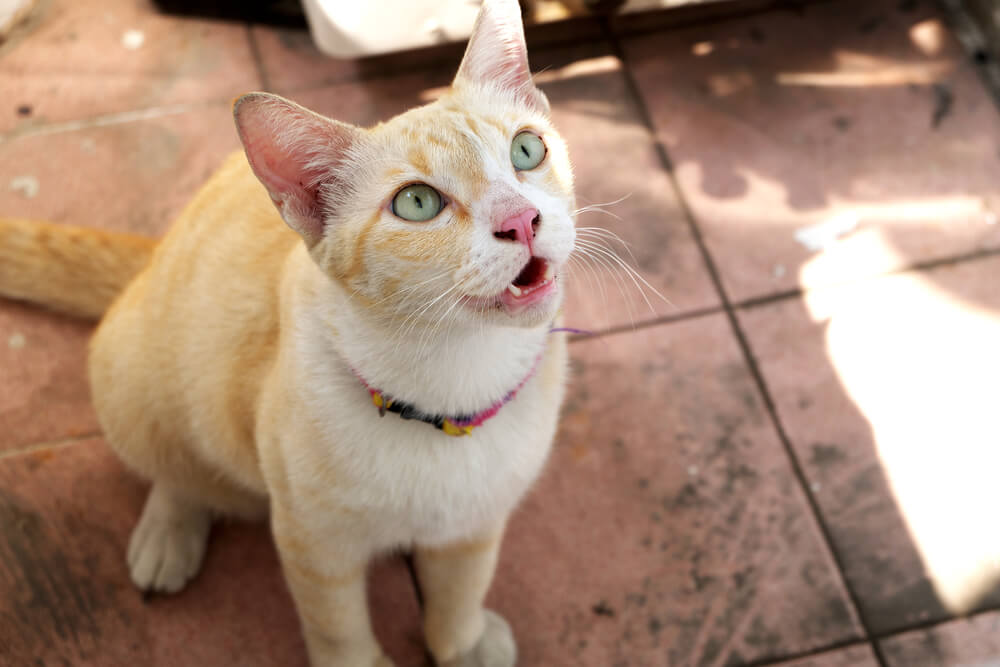
Grieving a loss is an individual experience, and is therefore expressed in an individualized way.
Just like people show grief in different ways, so do our cats. Some grieving cats may show behavioral or appetite changes. Other grieving cats may act completely normal. In general, the signs of grief in pets are similar to that of severe stress and anxiety.
Signs of grief in cats may include, but aren’t limited to;
- Behavior changes, such as being more clingy or withdrawn
- Changes in sleeping patterns, such as sleeping more or sleeping less and being more active.
- Reduced appetite/lack of appetite/weight loss
- Drinking more or less
- Vocalizations, such as howling, meowing, and hissing.
- Lack of energy or interest in surroundings
- Wandering around the house – often visiting spots where the deceased would have been.
- Overgrooming
- Inappropriate elimination/urination
- Cystitis
- Redirected aggression
This list isn’t exhaustive and many pet owners may notice other symptoms of grief in their pets. Every cat is an individual and they’ll show grief in their own way. As mentioned above, some cats may not show any outward signs of stress or grief but may feel the loss all the same.
How To Help Your Grieving Cat
After the loss of a loved one, your cat may grieve for a period of time. This may be days, weeks, months, or even longer. The grieving process depends on the individual and the bond that they had with the deceased.
It’s important to treat a grieving pet with patience and understanding. Their behavior and appetite may be different from what it was before. Cats that are grieving or stressed may overgroom their fur, urinate outside of their litterbox, or even fight with other pets in the house. Don’t punish them for this behavior; they don’t understand what they’re doing and are doing it as a response to stress.
For pets that are grieving, it’s important to try and keep routine and schedule going as much as possible. Feed them as you normally would but pay attention to how much they’re eating to ensure that they’re getting enough.
Plug in a synthetic pheromone (Feliway) if your cat appears to be stressed or grieving. You can also get some calming medication from your vet if they appear very distressed.
Offer more attention and TLC if this is what your cat is looking for. If your cat wants space, give them that and offer them plenty of hiding areas to retreat to.
If your cat isn’t eating or drinking, seek help from your veterinarian as soon as possible. Cats can become unwell very quickly if they’re stressed so don’t hesitate to get veterinary advice if your cat is behaving differently.
My Cat Isn’t Grieving – Is This Normal?
Not all cats feel the same when they lose a loved one. They may not grieve in typical ways and there may be no visible signs of grief or stress. It doesn’t mean that they aren’t grieving in their own way.
Another possibility, one that I often see in practice, is that a cat may not be upset by the loss of a companion. This is often the case when two cats don’t get along very well or if one cat is more dominant than the other cat. Cat owners may notice that when the more dominant cat dies, the other cat comes out of their shell and become more confident.
Euthanasia and Pets
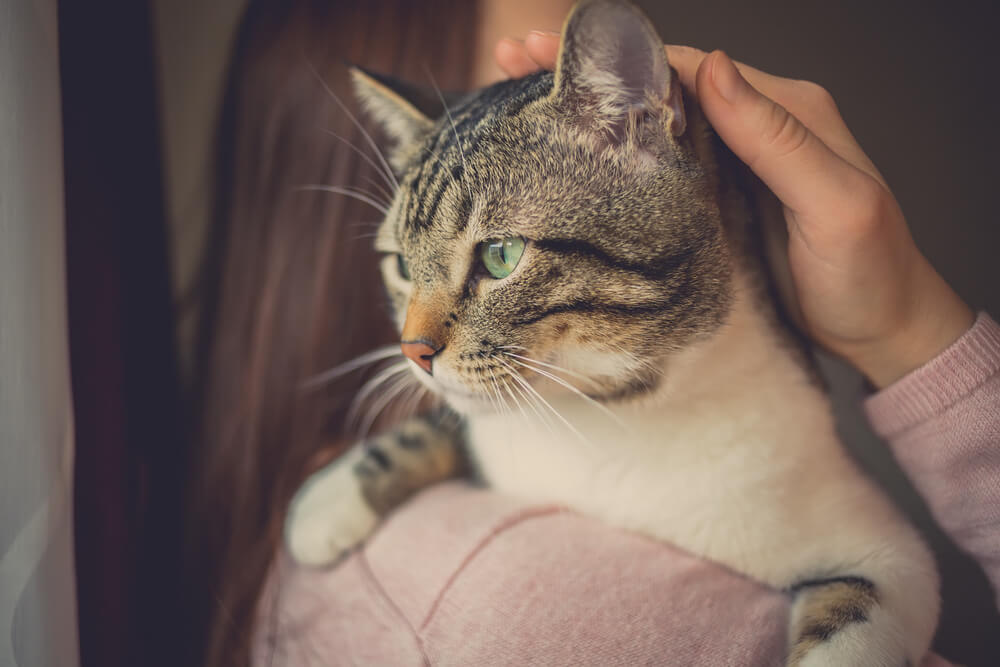
Cats can understand and sense when a death has occurred.
Losing a companion animal friend can be heartbreaking for our pets and for us. If you’re bringing your pet to the veterinarian for euthanasia (or if the vet is making a house call), you may wonder if you should allow your other pets to see their companion afterward.
It’s true that animals can sense when another animal has died. By allowing your pet to sniff their companion after euthanasia, they may be able to sense that they’ve passed away. It’s a personal choice whether you decide to do this or not.
It depends on whether your pets had a close bond or not and whether it may stress your pet to come to the veterinary clinic (if the vet isn’t performing a house call). This is especially the case with cats, as they’re often very stressed when they travel in a car and leave their home.
Getting Another Pet After the Loss of a Companion
If your cat is grieving the loss of their fellow pet companion, you may be wondering if you should get another pet. This may seem the logical answer if your cat is grieving and heartbroken. However, this isn’t always the right answer!
Your cat may have been very close to their previous companion and this won’t always be the case with a new pet. You will need to judge your cat’s personality (social or shy), how they get on with other animals, and their age (older pets may be more stressed by a new arrival) before getting another pet. If they have symptoms of grief and stress, be sure to book a visit with your veterinarian. They may have an underlying illness or disease and this won’t be helped by getting another pet.
Final Thoughts
Cats can feel grief and heartbreak after the loss of a human or pet companion. Similar to humans, cats can feel grief differently and the symptoms can be similar to stress.
Broken-heart syndrome is a recognized condition in humans but not yet in cats. It’s possible that cats can suffer severe stress after a loss, which can bring on other conditions or worsen underlying diseases. These can be fatal if not treated promptly by a veterinarian.
However, not all cats will grieve and this can be perfectly normal too. Every cat is different so they will react differently to loss and heartbreak.
Also Read: Do Cats Understand Death?
Frequently Asked Questions
Can cats experience heartbreak?
Just like humans, cats can indeed experience heartbreak. This can occur after the loss of a human or a fellow pet companion. They can show signs of stress, anxiety, and depression when they’re grieving.
Can a kitten die from a broken heart?
It’s possible that cats suffer severe stress when they lose a close companion. This severe stress can cause decreased appetite, behavior changes and even worsen underlying illness. This could be fatal if not treated quickly by a veterinarian.
What happens when one of a bonded pair of cats dies?
If a cat loses their close companion, they will likely grieve for days to months. They may be more clingy than usual and may have a reduced appetite and thirst. Provide them with plenty of attention (if they wish it), treats, and understanding. Plugging in a synthetic pheromone diffuser can help to ease anxiety.
How do you help a pet when another pet dies?
When another pet dies, the remaining pet may grieve. Be patient, gentle and understanding with them. Provide them with attention, treats and keep their routine the same. Plug in a synthetic pheromone diffuser and get calming medication from your vet if needed.

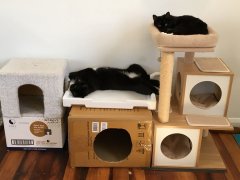


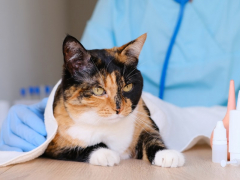

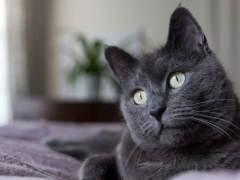
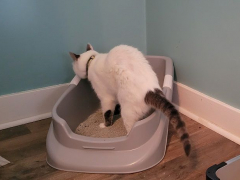
I can say for sure that cats do die of a broken heart. This is a story that happened recently. A person I know, because of serious health problems had to put his cat named Sanun for adoption. Sanun died two days after being adopted, The cat was healthy and very loved by his father and the cat loved his father very much. Even if the family that adopted Sanun was a family that loves animals very much, especially cats, the kitty couldn’t cope with losing his father. So it is true that cats can die of a broken heart.
I feel like this is what happened to Tiger. Fireball was the 3rd bonded, best friend he had lost. I feel like he just didn’t have it to go on again.
I’m sorry.